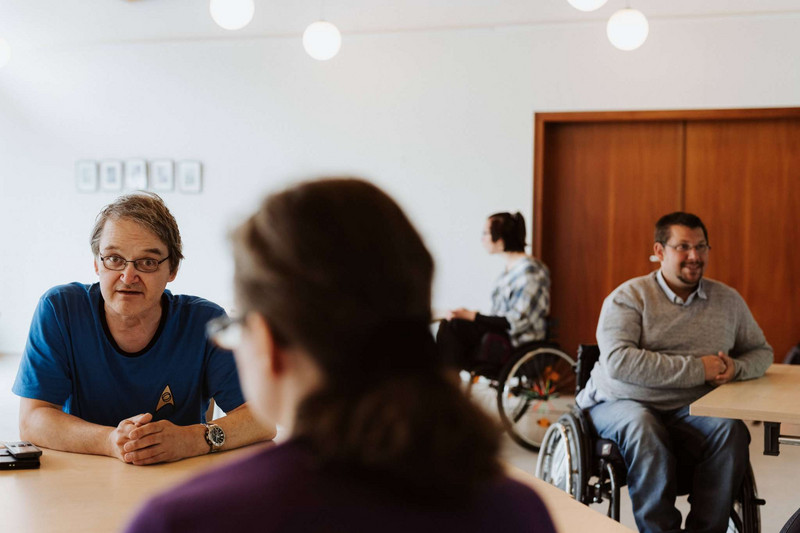More Inclusion in the Education System

“Not without us, about us” is the motto under which the Kiel Institute for Inclusive Education is committed to training and further education. “We are convinced that the active educational work of people with disabilities strengthens and distinguishes technical colleges and universities, politics, administration and companies”, is what appears on the institute’s website, which is based at Christian-Albrechts University in Kiel. The fact that this approach works well, is demonstrated by the success of the world’s first three-year full-time qualification as an educational specialist, whose graduates are employed full time as lecturers at Kiel University and who sensitise students to the needs of people with disabilities in their seminars. An existing cooperative venture with the university town of Heidelberg is to be followed by others – so that qualified individuals with disabilities will have more of a presence at universities nationwide in future and be able to convey their expertise proficiently on their own behalf.
With the non-profit company IIB2 Advice Education Work that has emerged from the institute and today bears the name “German Inclusion Center”, the advisory work for inclusive education and work will also be expanded. This is necessary because despite all the effort invested in an inclusive school system so far, only a few young women and men with disabilities have started regular training. “Most of them still work in what are known as workshops for the disabled”, as SAGST project manager Markus Kleikemper explains the background of the project.“ In addition to the universities, public administrations and companies are also very interested in better embedding inclusion in our everyday work – but for this we need the appropriate qualification opportunities.”
This is why SAGST promotes the development of model training paths in five different occupational fields: over five years, 30 individuals who need help in terms of day care, nursing, job market coaching, communication / digitalisation and advice are prepared for their first job market. The concept of trial training through easy learning combines the skills of people who need help with the requirements of the employer and ensures the required support for participating. Regional specialist groups connect people with disabilities, companies, educational institutions and participation supporters. “This means a crucial expansion of the usual dual vocational training system”, Kleikemper continues, who sees this as an important step towards more inclusion. “Similar to the model project for qualified educators, concepts are being created here that may also lead to more diversity and barrier-free living together elsewhere in our society.”
